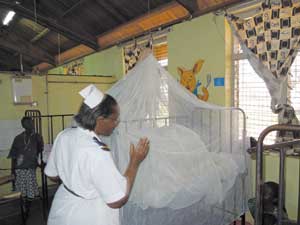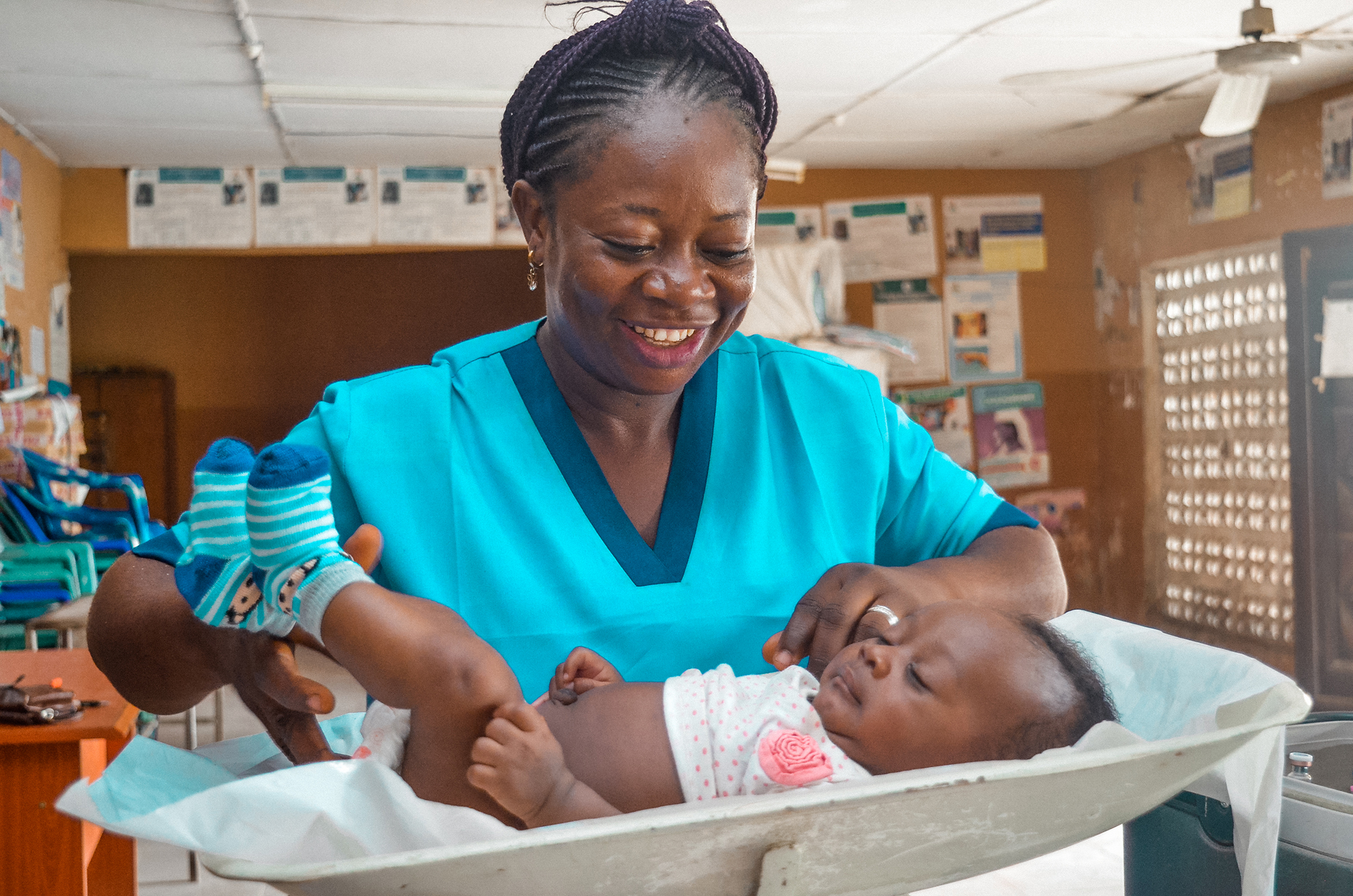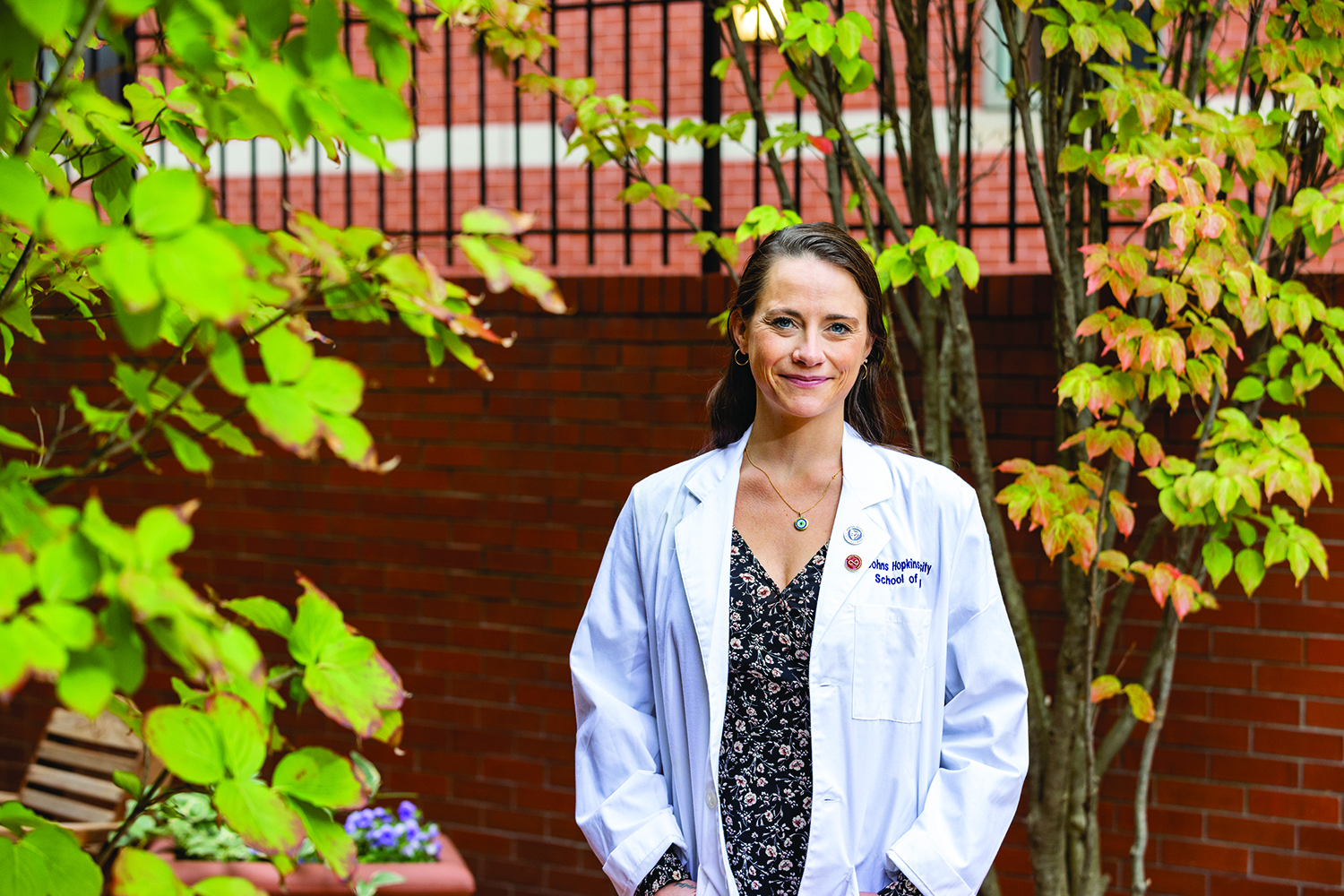
Nursing Student Prevents Malaria in Uganda
by Rebecca Proch
Rachel Looney didn’t set out to be an activist. As a nursing student completing her final two-month clinical rotation at the International Transition Placement program at Mulago Hospital in Uganda, she just wanted to help solve a persistent problem in her pediatric ward. Too often, children on the brink of release were stricken with malaria after being bitten by mosquitoes in the hospital. After seeing one little boy who was well enough for discharge rapidly decline and nearly die, she decided to get insecticide-treated nets (ITNs) for the ward. Using ITNs can prevent as many as 50 percent of malaria cases in high-risk areas, according to the World Health Organization. It’s a relatively simple and inexpensive response to a deadly disease that claims over half a million lives every year, 90 percent of them in Africa. Children under five are especially at risk.
Looney, now a Master’s student at Johns Hopkins University School of Nursing, first applied to the Ugandan Ministry of Health for 50 nets, enough for her ward. After a four-hour wait to be seen and a promise that her request would be reviewed, she wasn’t feeling optimistic the nets would be provided. A Ugandan friend put her in touch with an ITN distributor, and she negotiated a price of $4 per net, intending to pay for them herself.
When her fellow students asked to chip in, she began to take up a collection. The Ugandan Ministry of Health came through with the 50 requested nets, but word had spread to friends and family, and soon there was enough money to buy nets for all Mulago’s pediatric wards, not just Looney’s—300 nets in total.
With the help of her friend Sean Buckland, a medical student from England, Looney made arrangements to keep up funding for the nets after she returned home: Every time a student from ITP books an excursion with the local company, Nalubale Raftine, $10 goes towards the purchase of new nets for Mulago. This allows the nets to be replaced as needed, and any extras are given to families of patients.
Looney is thrilled that her project continues to thrive without her. “People wanted to help, but a lot didn’t know how to,” she says. “This is something simple but effective that they can do to make a difference.”
 Global Service Learning: Guatemala
Global Service Learning: Guatemala Nurse Edith Brings Primary Health Care to Everyone in Rural Nigeria
Nurse Edith Brings Primary Health Care to Everyone in Rural Nigeria The Elephant in the Room
The Elephant in the Room Help Is on the Way
Help Is on the Way From Baltimore to Vellore, India: Global Support for Nurses Struggling with COVID-Related Mental Health
From Baltimore to Vellore, India: Global Support for Nurses Struggling with COVID-Related Mental Health






